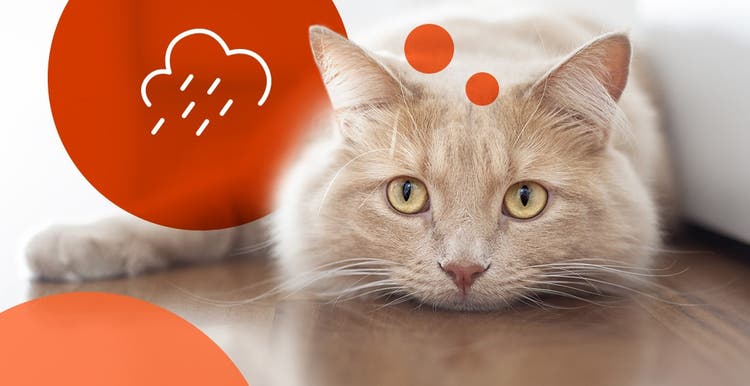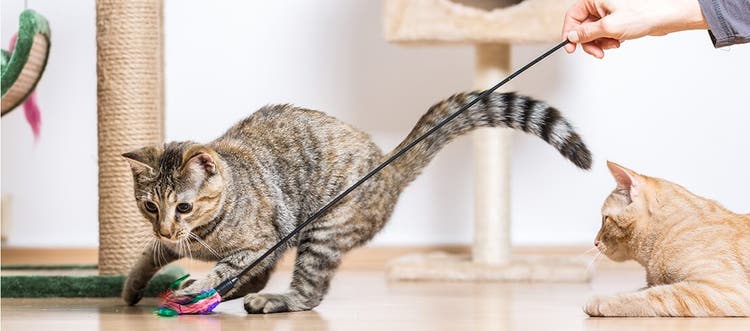Tips for keeping your feline friend happy.
Cats can’t talk with us directly. This makes it difficult to know if we’re satisfying all their needs. Some cats will act out if they are stressed or unhappy, but others may hide their distress out of self-defense. Here are some things you can do to help improve your cat’s overall well-being.
Allow your cat to retreat to safe spaces
Even the most energetic, sociable cat is likely to need a break from constant interaction and sensory stimulation. Provide private hiding places for your cat by making space under beds, behind the sofa, and/or inside a cabinet.
If your cat chooses to retreat to one of these places, respect their privacy. Don’t intrude or disturb them unless you have reason to believe they are sick or hurt. This will help ensure it remains a safe space for your cat.
Give your cat the ability to make choices
Cats need to feel like they have some autonomy. Try giving them a few different toys to play with and rotating them out every couple of weeks. Provide multiple high points for your cat to lounge on and an extra litter box so they have a choice of places to relieve themselves.
Another way to encourage autonomy is by offering water with their food as well as in another place in the home. You can periodically switch the location of the second water vessel. This allows your cat to explore and “discover” this alternate water source, much like they would in the wild. Of course, this also means you will need to be vigilant about not leaving your own uncovered drinking vessels sitting around your home! Make sure to clean their secondary water bowl just as often as you clean their primary drinking bowl.
Keep cats from getting bored by enriching their environment
Cats’ instincts tell them to explore their environment for new sights, sounds and smells. Being in the same house all the time can be a challenge for any cat.
To curb boredom, introduce new things to your cat on a regular basis. This could be a new toy, but it could also be a simple cardboard box. You can leave these things sitting around for your cat to “discover” and investigate at their leisure. Allow for interesting smells to make their way into your home by installing grills over your windows and/or by providing catnip sparingly (e.g., a few minutes every other day). Soft music and ambient noise are great but be aware that loud music could be distressing for your cat.
Be mindful of behavioral changes in your cat or kitten
Unusual or unwanted behavior in your cat may be a sign of underlying stress or anxiety. It is never a good idea to jump to punishing “bad” behavior. Take some time to consider what may have changed in your cat’s environment lately. Is there a new person or pet in your household, or have there been more frequent visitors lately? Have you made changes to the layout of furniture or your cat’s things? Have you introduced new, strong smells to your cat’s environment, like air fresheners, perfumes or essential oil sprays? A little variety is great to prevent boredom, but too much all at once can be overwhelming.
If there doesn’t seem to be any environmental reason for why your cat is behaving differently, you should reach out to your veterinarian to see if there could be an underlying medical issue.
It’s natural to wonder if you are meeting your cat’s needs sometimes. It shows that you are an attentive owner! Putting these tips into practice will go a long way toward satisfying your cat’s needs for a safe, yet stimulating environment.
Related Articles

New Cat or Kitten: Our Downloadable Guide
Thinking about adding a feline to the family? There are so many emotional, social and physical benefits to owning a cat. Check out our free guide, also available to download!



